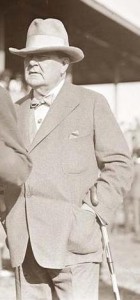 The snass arrived last night, though here at the sprawling Art Scatter compound on the Northeast Plateau, at least, nothing like a “major weather event” occurred, which is surprising after all of the “flood of floods” warnings bleating from the television the past few days.
The snass arrived last night, though here at the sprawling Art Scatter compound on the Northeast Plateau, at least, nothing like a “major weather event” occurred, which is surprising after all of the “flood of floods” warnings bleating from the television the past few days.
“Snass” is the Chinook Jargon (or Chinuk Wawa) word for rain — it rhymes with moss. It is the only word for rain I was able to find in George Gibbs’ famous 1863 dictionary of the trading language, which was used by many tribes of the Pacific Northwest, especially along the Columbia, as well as French and then British trappers and traders. I would have guessed that native peoples employed at least 111 words for the varieties of precipitation that come our way here, from mist to lashing downpour, and the languages of various individual tribes may well have such words. But not Chinuk Wawa, and frankly, I like its economy. Snass. Most of the time here, we know it means light rain turning to drizzle from sometime in November to sometime in May, with periods when it is merely overcast. Snow, by the way, is called “cole snass”, a little English sneaking in there.
Who invented Chinuk Wawa? That’s a major debate in the circles that debate things linguistic involving Native Americans. One side argues that the French started it to communicate with Northwest tribes, which explains all the French words that Gibbs recorded, word like lamonti for mountain or lapeep for pipe. But sometimes this isn’t conclusive. The jargon word for fowl is lapool, which is certainly French enough, but then the Siwash word for grouse is also lapool, according to Gibbs.
My own suspicion, and these days the majority opinion, is that a lingua franca (that wasn’t franca) united the tribes, who were big traders before the French arrived. That language was elastic enough to bend and merge with the language of the new European arrivals — each side used the words of the other. It was a living language that changed with times, until the tribes were routed by force of arms, disease and the sheer number of Euro/Americans flooding the countryside. And maybe it still is — the Confederated Tribes of Grand Ronde have an ongoing Chinuk Wawa language program.
The people of the Lower Columbia have been on my mind lately, especially the people who lived right here, where the Willamette meets the Columbia, the Multnomah tribe. Like many of the other tribes we gather under the name Chinook, the Multnomah have been something of an anomaly for anthropologists and archaeologists trying to create a nice, clean developmental account of human history on the continent. We’ll get to that in our next post.








